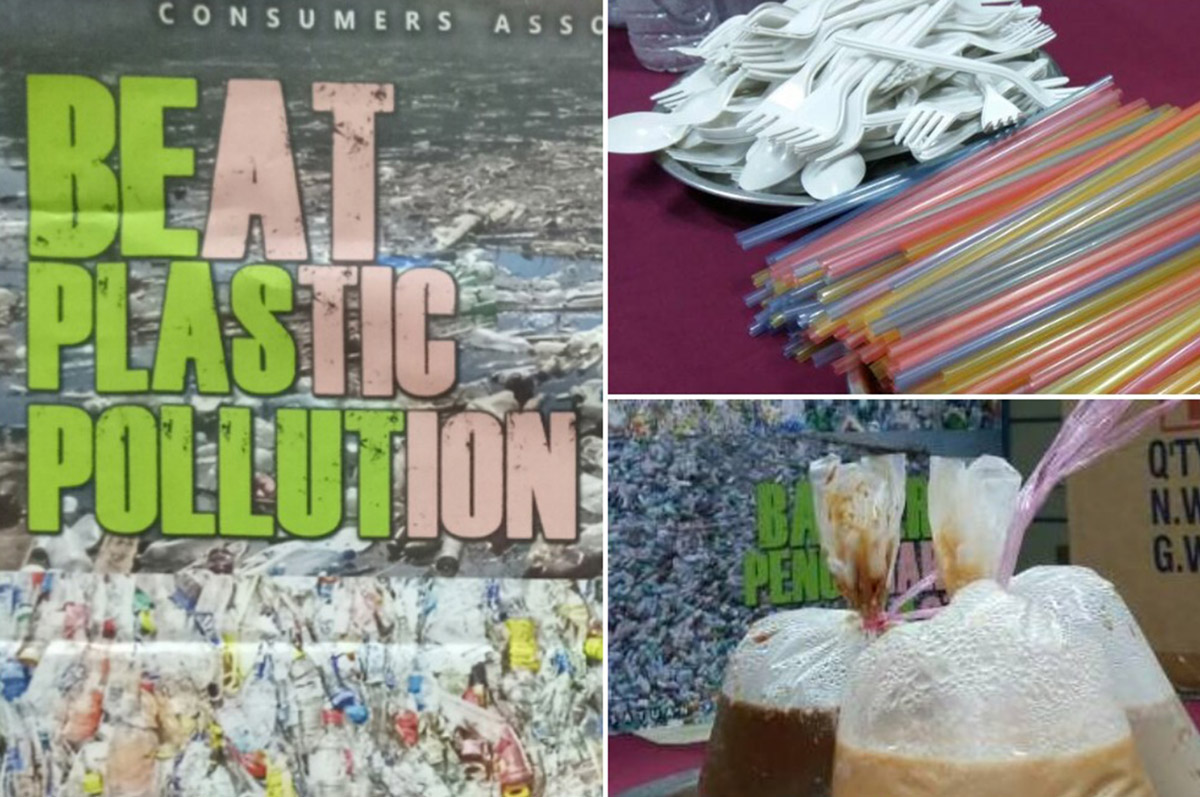The proposal by the Penang government and local authorities is the way forward as the growing reliance on plastic to meet our culture of convenience is a bane to the state and the planet. In the past, CAP and SAM have observed and received complaints regarding the excessive use of plastic food and drink containers, disposable cutlery, straws, take-out containers in food outlets. This practice not only increases the amount of waste to be disposed but subsequently impacts the environment, economy and public health.
Globally, an average of eight million tons of plastic escapes collection systems, winding up in the environment and eventually the ocean. Hence, it is essential that the single-use, throw away culture end. The best alternative is to replace plastic products with reusable/refillable products.
Restaurants and food service establishments can solve the problem of plastic pollution by switching from disposable plastic for washable, reusable utensils. For take-outs, customers should use their own utensils. The local authorities can expedite these changes by banning plastic and other disposable utensils.
The movement to ban straws and other single-use plastics are growing all over the world. In March 2018, the Maharashtra government in India had announced its ban on plastic bags, water bottles and other disposable plastic items and started implementing the prohibition beginning 23 June this year.
Taiwan is planning a blanket ban on single-use plastic items including straws, cups and shopping bags by 2030. In May 2018, the European Commission proposed banning single-use plastic products such as cotton buds and plastic straws and putting the burden of cleaning up waste on manufacturers in an effort to reduce marine litter.Vancouver, Scotland, and other cities in the United States of America have also announced plastic straw bans and pending ban legislations.
The RefillNotLandfill movement in Cambodia aims to cut down on millions of plastic water bottles discarded by tourists and locals. The alternative offered is reusable aluminium bottles that can be refilled free of charge at designated venues across the country. This campaign has expanded to Myanmar and Laos. We can learn from this initiative to reduce the use of plastic water bottles.
Whilst States and consumers are taking positive initiatives, producers must also be compelled to take responsibility for the full life-cycle costs and impacts of their products and packaging, and must redesign and innovate safer materials and systems. Businesses must start transitioning and usher in alternatives that are reusable.
CAP and SAM urge the Federal government to enact legislation to impose a nationwide ban on plastic straws, carry bags, water bottles, stirrers, utensils, toothpicks, sachets, food wrap sheets, polystyrene packaging and food containers. Both the local authorities in Penang must expedite implementation of the proposed bans and lead the way to address the plastic pollution in the state and country.
#breakfreefromplastic




